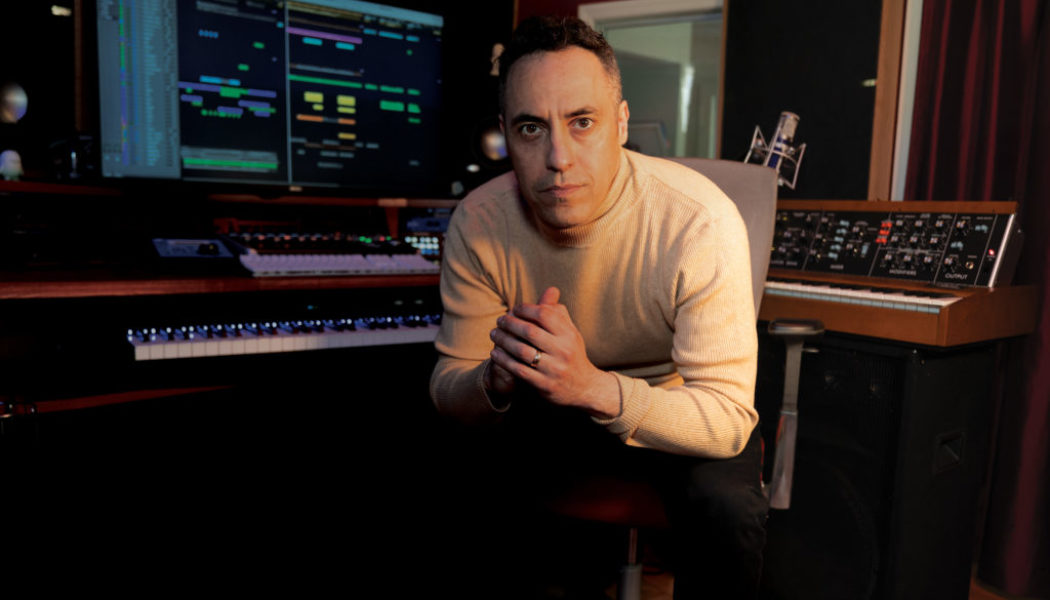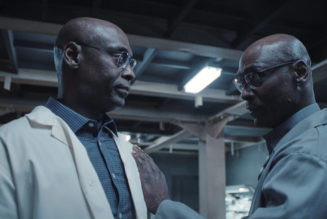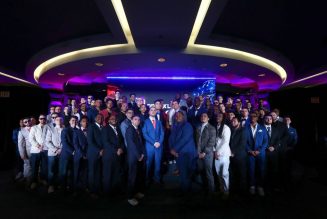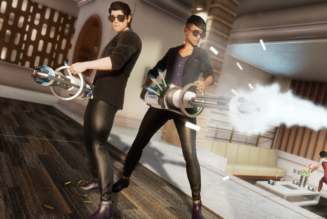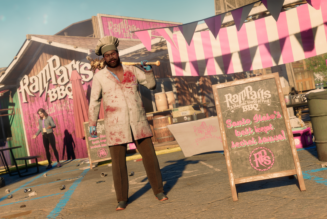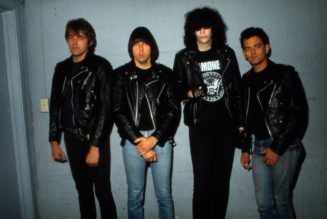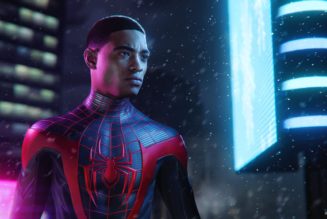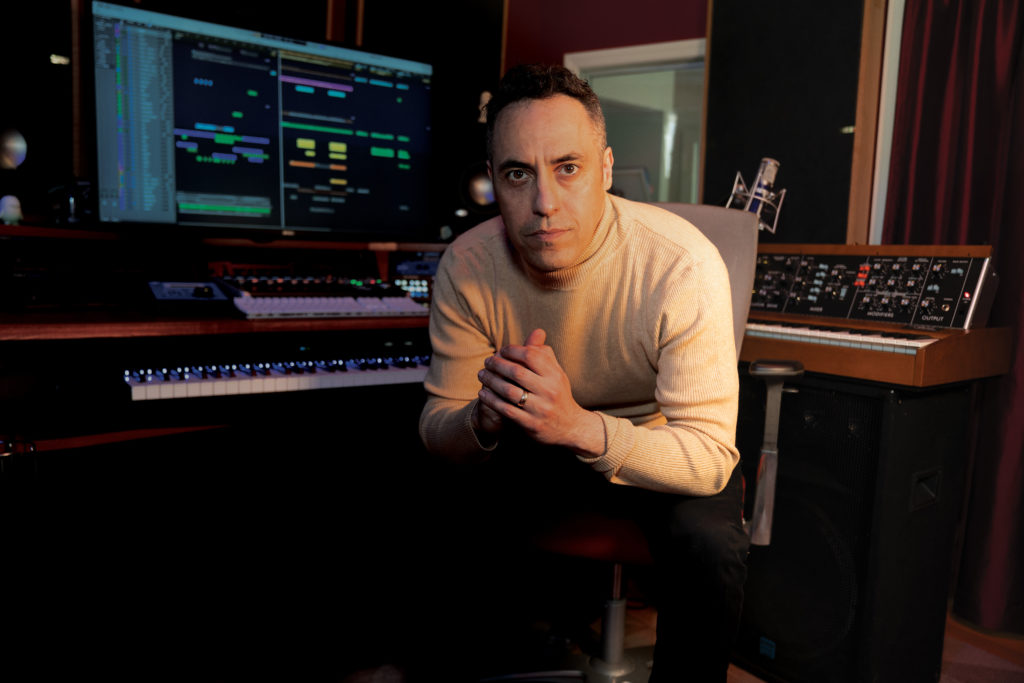
If you’ve watched anything even remotely related to video games this year, you’ve probably seen a trailer for Deathloop. The latest game created by Arkane Studios (Dishonored, Prey) is undoubtedly one of the biggest titles to release this year, both as far as popularity and critical acclaim go.
The colorful new title sees players stuck in a 1960s time loop on an island/former military base called Blackreef, where its eight inhabitants are looking to kill the protagonist before he can kill them. If the time loop mechanic of Outer Wilds and the modern Hitman trilogy had a stylish baby raised by the people who did one of the best first-person narratives of the 2010s with Prey, the result would be something like Deathloop — but not exactly.
Along with the intricate visuals and refreshing take on gameplay, Deathloop boasts a score from award-winning composer Tom Salta. From major video game series (Halo, PlayerUnknown’s Battlegrounds, the Tom Clancy games) and trailers for massive movies (Toy Story 3, Coraline, Harry Potter) to your favorite 2000s TV shows (Punk’d, America’s Next Top Model) and enormous pop stars (Cher, Whitney Houston, Sinead O’Connor), Salta’s worked on just about every type of project imaginable. On Deathloop, he was responsible for taking his two decades of experience and channeling it into an immersive and wide-ranging score to transport players into the unique 1960s atmosphere of Blackreef.
In honor of his latest title finally releasing, SPIN spoke with Salta to chat about both his work on Deathloop as well as some of his previous greatest hits.
SPIN: Deathloop obviously has a pretty unique visual style to it, so what did you do with the score to match it?
Tom Salta: We wanted the score to Deathloop to be as unique as the game itself. Starting with the motif in the main theme, “Welcome to Blackreef,” you will begin to hear a repeating loop in the music that is used all throughout the score. Using a wide range of late ‘60s instruments like Rhodes, Wurlitzers, Hammond B3, Clavinet, vibraphone, bass, drums and authentic guitar tones, the score has a unique and identifiable sound that I hope will fully immerse the players in this other world.
You’ve worked on so many different projects across music, film, and gaming, but do you think there are any themes or sounds that remain similar in a lot of your work?
[Laughs.] I’m probably the wrong person to ask! I always try to reinvent myself and give each project I work on an original sound. Nonetheless, over the years, people have told me that there is often something identifiable in my music that gives me away, but it’s not the themes, instruments or styles. It might be something about the overall sound, mix and possibly my overall musical sensibilities. But I’m still not completely sure. When I figure it out, I’ll let you know.
Outside of creating and recording in a global pandemic, was there anything that made your experience with the Deathloop score really unique?
One of the things that makes my approach to the late ‘60s unique is that — since I’m not a guitar player — I used lots of other instruments to create distorted tones and mimic guitar parts. One of my favorite sounds was running the Clavinet through guitar amps. I also mangled many other instruments through various amps and period-style effects, which all added to the unique color of the score.
After working with some of the biggest names in music, film, and video games, are there any major differences when working on one medium compared to the others?
Gaming is a non-linear experience, and the music has to be approached in the same way. As opposed to my work in various other media, my music in games is created in pieces and sections that are designed to loop or connect in various ways. This allows the game engine to seamlessly transition from one music state to another without calling attention to itself.
Out of all of the projects you’ve worked on over the last couple of decades, do any stand out for you personally?
It’s hard to pick favorites, because there are various scores along the years that hold a special place for me for various reasons. One of my earlier scores for Red Steel in 2004 was both challenging and extremely rewarding. The sheer variety of music and speed in which that score was put together was unforgettable. It was also a huge creative stretch for me — especially to the degree that I had to dive into various Japanese music styles.
Prince of Persia: The Forgotten Sands was also another rewarding experience. I had always dreamed of scoring a Prince of Persia game, and when I was finally given the chance, I was absolutely thrilled. Listening back to that score now is like music therapy for me. It has an other-worldly sound that is often meditative.
There are many other personal highlights for me, but the last one I must mention was my various work on the Halo franchise. Given how Halo: Combat Evolved helped inspire me in 2001 to get into game scoring, it was literally a dream come true to become part of the musical team in 2010. Recreating the original scores for Halo: Combat Evolved and Halo 2 in The Master Chief Collection was a once in a lifetime experience — and then creating the original scores for games like Halo: Spartan Assault, Spartan Strike, plus the animated film Halo: The Fall of Reach, was both challenging and exhilarating. I love taking a listen to those scores once in a while. It brings me right back to my favorite memories of Halo.
